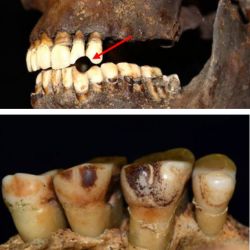-
Study
-
Quick Links
- Course Search
- Fees and Funding
- Unlock Your Potential
- Still time to Apply
- Higher and Degree Apprenticeships
- Continuing Professional Development
- Still time to apply
-
Undergraduate
- UCAS Clearing & Confirmation 2025
- Application Guides
- UCAS Exhibitions
- Foundation Years
- School & College Outreach
- Information for Parents
-
Postgraduate
- Application Guide
- Postgraduate Research Degrees
- Flexible Learning
- Change Direction
- Register your Interest
-
-
International
International
Northumbria’s global footprint touches every continent across the world, through our global partnerships across 17 institutions in 10 countries, to our 277,000 strong alumni community and 150 recruitment partners – we prepare our students for the challenges of tomorrow. Discover more about how to join Northumbria’s global family or our partnerships.
View our Global Footprint-
Quick Links
- Course Search
- Undergraduate Study
- Postgraduate Study
- Information for Parents
- London Campus
- Northumbria Pathway
- Cost of Living
- Sign up for Information
-
International Students
- Information for Students
- International Events
- Application Guide
- Entry Requirements and Education Country Agents
- Global Offices
- English Requirements
- English Language Centre
- International student support
- Cost of Living
-
International Fees and Funding
- International Undergraduate Fees
- International Undergraduate Funding
- International Masters Fees
- International Masters Funding
- International Postgraduate Research Fees
- International Postgraduate Research Funding
-
International Partners
- Agent and Representatives Network
- Global Partnerships
- Global Community
-
International Mobility
- Information for Northumbria Students
- Information for Incoming Exchange Students
-
-
Business
Business
The world is changing faster than ever before. The future is there to be won by organisations who find ways to turn today's possibilities into tomorrows competitive edge. In a connected world, collaboration can be the key to success.
More on our Business Services -
Research
Research
Northumbria is a research-rich, business-focused, professional university with a global reputation for academic quality. We conduct ground-breaking research that is responsive to the science & technology, health & well being, economic and social and arts & cultural needs for the communities
Discover more about our Research-
Quick Links
- Research Peaks of Excellence
- Academic Departments
- Research Staff
- Postgraduate Research Studentships
- Research Events
-
Research at Northumbria
- Interdisciplinary Research Themes
- Research Impact
- REF
- Partners and Collaborators
-
Support for Researchers
- Research and Innovation Services Staff
- Researcher Development and Training
- Research Ethics and Integrity
- University Library - Open Access
- Vice Chancellors Fellows
-
Research Degrees
- Postgraduate Research Overview
- Doctoral Training Partnerships and Centres
- Academic Departments
-
Research Culture
- Research Culture
- Research Culture Action Plan
- Concordats and Commitments
-
-
About Us
-
About Northumbria
- Our Strategy
- Our Staff
- Place and Partnerships
- Leadership & Governance
- Academic Departments
- University Services
- History of Northumbria
- Contact us
- Online Shop
-
-
Alumni
Alumni
Northumbria University is renowned for the calibre of its business-ready graduates. Our alumni network has over 246,000 graduates based in 178 countries worldwide in a range of sectors, our alumni are making a real impact on the world.
Our Alumni - Work For Us
What will I learn on this module?
This module aims to provide you with the initial foundations for acquisition and critical appraisal of knowledge with which to support your learning across the programme and evidence informed professional judgements in social work practice. These foundations will include the acquisition of academic information skills, key skills of critical reflection and an understanding of fundamental principles of social work research and knowledge creation and include consideration of relevant ethical issues.
How will I learn on this module?
You will learn through lectures, seminars, tutorials, group work, self-directed study, and Northumbria University Study Skills Resources.
Lectures will cover key academic information skills and critical appraisal skills on knowledge. Seminars will have strong practical orientation activities to apply knowledge gained from the lectures in the form of practical examples and small group activities during the seminar sessions. Throughout the module, therefore, you will be asked to reflect on what is known and your own standpoint on this, and seminars will aim to offer a safe space for discussion and debate on that. You will be asked to share your own skills with peers in order to maximise your own and each other’s learning. This addresses the need to recognise the impact of differences of viewpoint where gathering information and the skills in being able to appraise the reliability and relevance of the information gathered.
How will I be supported academically on this module?
Support will include feedback from seminar tutors and peer groups during seminars, as well as formative feedback on formative assessment tasks. In addition, your seminar tutor will respond to questions via the module’s discussion board on the University’s eLearning Portal so that the whole group can benefit.
What will I be expected to read on this module?
All modules at Northumbria include a range of reading materials that students are expected to engage with. Online reading lists (provided after enrolment) give you access to your reading material for your modules. The Library works in partnership with your module tutors to ensure you have access to the material that you need.
What will I be expected to achieve?
Knowledge & Understanding:
• Recognise and describe why evidence is important in social work practice, with an awareness of ethical issues
Intellectual / Professional skills & abilities:
• Demonstrate the ability to locate, evaluate and present evidence to support practice.
• Understand the role of reflective practice and demonstrate basic skills of critical reflection.
Personal Values Attributes (Global / Cultural awareness, Ethics, Curiosity) (PVA):
• Identify your own standpoint on what is known.
How will I be assessed?
Summative Assessment will be a structured enquiry based task of 1,500 words, demonstrating the ability to find and appraise evidence in relation to a given practice based topic and bringing together the skills newly developed through the module.
Formative assessment comprises an extracted task from the summative assessment on which you will be given a) verbal feedback by your peers as well as your seminar tutor b) written feedback to support you for the summative submission.
Pre-requisite(s)
Not applicable
Co-requisite(s)
SW0417, SW0418, SW0419, SW0420, SW0421
Module abstract
This module will provide you with the initial foundations for acquisition and critical appraisal of knowledge with which to support your learning across the programme and evidence informed professional judgements in practice. Learning and teaching will comprise lectures, seminars, group work, independent study and supported use of Northumbria University Study Skills Resources. We recognise and value that each student will bring different skills and ideas to the module, we hope you will share these to maximise your learning during this module.
This module will help you develop key skills for your academic work and future employment, such as finding and reflecting evidence, critical writing, critical understanding how to manage yourself and your time effectively, make judgements, work towards independence in learning and practice, and communicate with individuals and groups in a range of settings using a variety of media. Through this module, you will also acquire and apply the habits of critical reflection, self-evaluation, and questioning assumptions, and develop your understanding of ethical issues in relation to social work interventions in specific situations.
Course info
UCAS Code L502
Credits 20
Level of Study Undergraduate
Mode of Study 3 years Full Time
Department Social Work, Education and Community Wellbeing
Location Coach Lane Campus, Northumbria University
City Newcastle
All information is accurate at the time of sharing.
Full time Courses are primarily delivered via on-campus face to face learning but could include elements of online learning. Most courses run as planned and as promoted on our website and via our marketing materials, but if there are any substantial changes (as determined by the Competition and Markets Authority) to a course or there is the potential that course may be withdrawn, we will notify all affected applicants as soon as possible with advice and guidance regarding their options. It is also important to be aware that optional modules listed on course pages may be subject to change depending on uptake numbers each year.
Contact time is subject to increase or decrease in line with possible restrictions imposed by the government or the University in the interest of maintaining the health and safety and wellbeing of students, staff, and visitors if this is deemed necessary in future.
Useful Links
Find out about our distinctive approach at
www.northumbria.ac.uk/exp
Admissions Terms and Conditions
northumbria.ac.uk/terms
Fees and Funding
northumbria.ac.uk/fees
Admissions Policy
northumbria.ac.uk/adpolicy
Admissions Complaints Policy
northumbria.ac.uk/complaints









